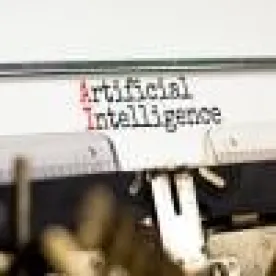The regulation of artificial intelligence (AI) has been a hot topic in recent months, fueled by the disruption caused by Generative AI and the privacy and security concerns it raised. Numerous regional and national initiatives around the globe are part of a race to define a regulatory approach with many challengers (ethical use, product safety, risk-based, human-centered) and no clear winners. What is certain, however, is that even within the EU Commission itself, many want to trophy AI regulation. Here is a brief roundup of the main four contenders.
EU Artificial Intelligence Act
Since its publication in April 2021, the European Commission’s proposal for a regulatory framework for AI has been the subject of many debates. This heavily lobbied piece of legislation will have its reality check in the European Parliament during the June 12-15 session. Initially considered a formality after intense discussions at committee’ level, tensions are now looming and the outcome of the vote is uncertain. If approved, the EU trialogue will start and seek to bridge the gap on a long list of issues (e.g. the definition of AI, the regulation of generative AI and the scope of impact assessments) that, if resolved, will lead to a binding instrument.
AI Code of Conduct
Earlier this month, Commissioner (and Vice-President) Margaret Vestager announced the development of an AI Code of Conduct focused on generative AI, recognizing that waiting years for the AI Act to come might leave organizations with too few landmarks when developing their AI compliance efforts. The AI Code of Conduct is a joint effort with the US as part of the EU-US Trade and Technology Council’s roadmap to develop trustworthy AI systems and risk management tools. The code of conduct is intended to provide specific guidance in line with the principles of the AI Act, although it will be interesting to see how it develops, as a draft of the code is expected within weeks.
AI Pact
Announced on the same day as the AI Code of Conduct, EU Commissioner Thierry Breton’s AI Pact aims for both EU and non-EU companies to voluntarily commit to complying with European AI legislation before it is implemented. Not all details are known, but the intention is to use the AI Act text and turn it into a non-binding arrangement. This could be an important marker towards addressing AI concerns, but its opt-in nature might impair the benefit of what is initially a product-safety inspired initiative. What is clear is that Commissioner Breton intends to be vocal about this initiative by meeting key stakeholders such as OpenAI’s CEO Sam Altman and Sundar Pichai, CEO of Google and Alphabet, to promote the pact internationally.
Code of Practice on Disinformation
Commissioner Věra Jourová will also meet with the signatories to the existing Code of Practice on Disinformation to encourage them to commit to labelling AI-generated content so that it is easily identifiable by users. This is an important step to prevent malicious actors from using these tools to generate misinformation.
Next Steps
Most organizations are already considering how to make a responsible use of AI. Hopefully, the multiple layers of soft and hard laws will prove to be helpful when defining AI governance (whether it relates to the development or the procurement of AI systems). After reading this post, you might ask a generative AI system to come up with a proposal on how it would regulate itself and see if it has an answer!
Lucia Rubio Robustillo also contributed to this article.






 />i
/>i
